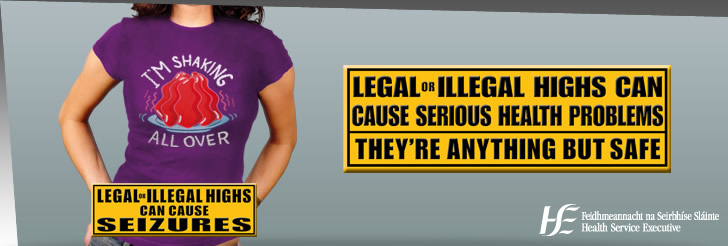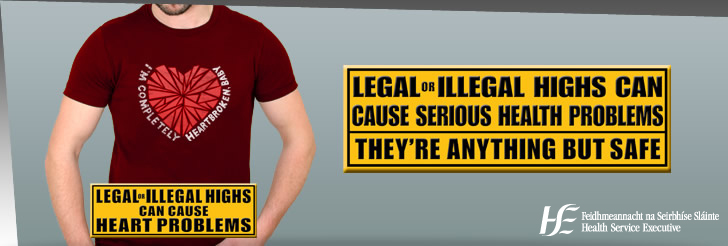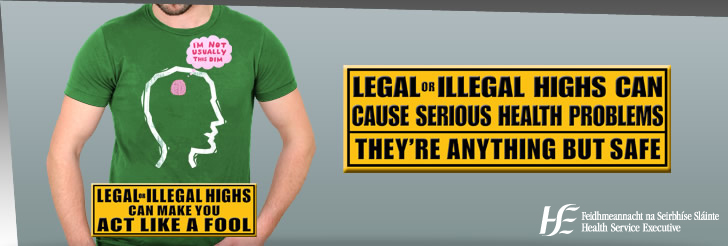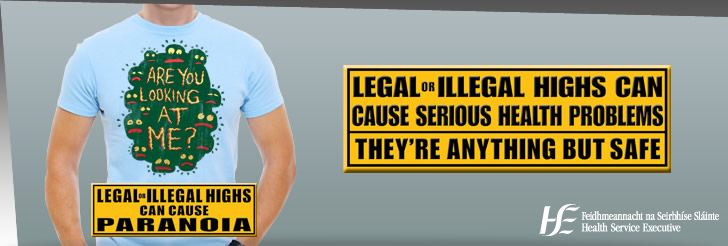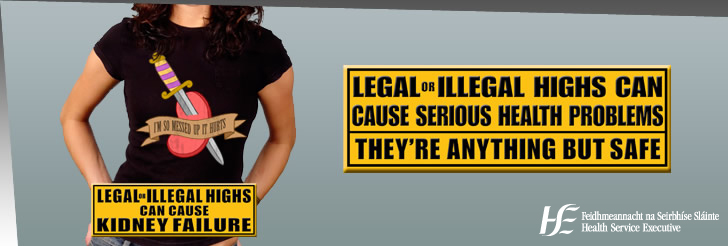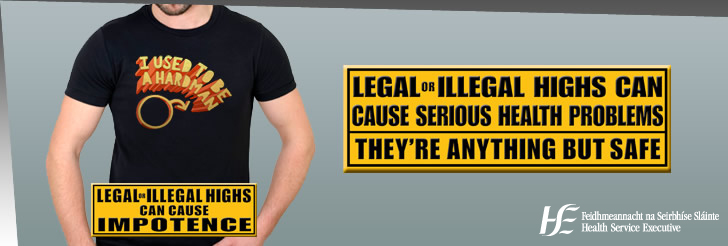
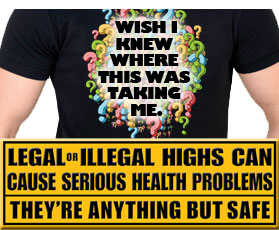 ‘Legal or illegal highs’, ‘head shop or herbal highs’ are names given to psychoactive substances (drugs) that may be on sale through shops that sell drug-related products (head shops, hemp shops) and other shops such as sex shops or tattoo parlours. The sale of these products in shops in Ireland was banned in 2010. They can also be bought on the internet. These drugs are sold as alternatives to drugs such as cannabis, ecstasy, cocaine, LSD, amphetamines and heroin.
‘Legal or illegal highs’, ‘head shop or herbal highs’ are names given to psychoactive substances (drugs) that may be on sale through shops that sell drug-related products (head shops, hemp shops) and other shops such as sex shops or tattoo parlours. The sale of these products in shops in Ireland was banned in 2010. They can also be bought on the internet. These drugs are sold as alternatives to drugs such as cannabis, ecstasy, cocaine, LSD, amphetamines and heroin.
There are several hundred types of these drugs, that we know of, available. These include drugs that act as:
- sedatives (downers),
- stimulants (uppers),
- hallucinogens (trips), and
- aphrodisiacs (sexual stimulants).
Some are herbal, meaning they come from a plant. Others are synthetic, meaning they are man-made from chemicals. Most are a mixture of both herbal and synthetic products.
These drugs are all psychoactive substances, that means they alter how you think, feel and behave. Their effect on physical and mental health is unpredictable and there is a risk of becoming addicted.
There are four broad categories of Headshop Drugs:
Smoke - Synthetic cannabinoids
Powders - Cathinones
Pills - Substitute piperazines and other stimulant-type products (‘uppers’)
Not for human consumption
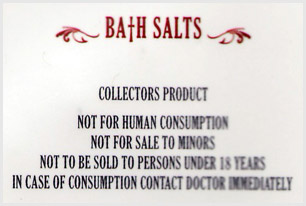 Many of these drugs on sale are labelled as ‘not for human consumption’, so that those selling and supplying these drugs can get around the law and avoid responsibility for any negative consequences or risks. Some drugs have legitimate uses in industry and animal care.
Many of these drugs on sale are labelled as ‘not for human consumption’, so that those selling and supplying these drugs can get around the law and avoid responsibility for any negative consequences or risks. Some drugs have legitimate uses in industry and animal care.
None of these drugs have been tested on humans for safety. We know nothing about the medium or long-term effects of using these drugs. Some or all of them could have dangerous side-effects.
- Some can make you confused – so that you will be more likely to have an accident or take dangerous risks.
- They can cause anxiety, panic attacks, paranoia or even psychotic illnesses.
- Many are stimulants (uppers) which may stop you sleeping, leaving you exhausted and depressed later on.
- These drugs can have negative effects on mental health – people often say they feel ‘head wrecked’ after taking these drugs.
- They can be toxic to humans, even ‘natural’ or ‘herbal’ substances can cause damage such as kidney failure, coma and even death.
Reduce the risks
If you do choose to use drugs, there are some things you can do to reduce the risks.
- Don’t use drugs alone – have a friend you trust with you.
- Don’t drink alcohol or use different drugs at the same time.
- Don’t share equipment such as pipes, rolled notes or needles as this can spread hepatitis and HIV.
- Check the ingredients on the products you buy.
- Stay well hydrated, particularly with drugs that stimulate – drink one pint of juice or water an hour.
- Don’t use drugs with prescription medications such as Ritalin, asthma inhalers, tranquillisers or anti-depressant medication.
- If you are pregnant or planning a pregnancy, don’t use any drugs or alcohol.
Using psychoactive substances such as alcohol, drugs or both together increases the risk of unplanned and unprotected sex. You can reduce the risk of unplanned pregnancy and Sexually Transmitted Infections by always using condoms and another type of contraception.
Need help after taking drugs?
Unconscious, difficulty breathing, turning blue or difficult to rouse? Call an ambulance immediately on 999 or 112. Stay with the person until the ambulance arrives – be honest with the ambulance crew about what the person has taken.
Having a bad experience?
- Try not to panic – speak in a calm voice and try not to show if you are scared or worried.
- Explain that what they are feeling will pass.
- Encourage them to settle in a quiet calm room, dim the lights if you can.
- If they start breathing quickly, calm them down and ask them to take long, deep breaths.
- Don’t allow them to over-exert themselves.
- Don’t leave them alone.

